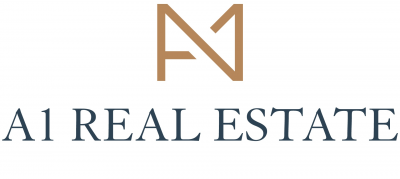
Nue-propriété à Paris : pourquoi cette stratégie séduit les investisseurs
Table of contents
- What are the advantages of bare ownership?
- Wealth management
- What are the tax benefits?
Real estate investing is an attractive area for many investors looking to diversify their portfolio and generate passive income. Among the various real estate investment strategies, bare ownership emerges as an intriguing option offering a range of unique benefits. In this article, we'll explore the benefits of bare ownership and why it's worth investors' attention.
What are the advantages of bare ownership?
Bare ownership, often referred to as dismemberment of ownership, is an investment modality where an individual acquires full ownership of a property, but temporarily relinquishes the use and income generated by it. Instead, the usufructuary retains the right of use and receives the rental income for a defined period of time.
One of the main advantages of bare ownership is its lower purchase price compared to full ownership. Due to the dismemberment, the bare owner can acquire the property at a lower cost, which is an attractive opportunity for investors wishing to minimize their initial investment.
In addition, bare ownership offers significant tax advantages. During the period of dismemberment, the bare owner is exempt from income tax and social security contributions on the income and capital gains generated by the property. This tax exemption can represent a substantial saving for investors, thus enhancing the attractiveness of this investment strategy.
Another major advantage of bare ownership is its simplified management. Unlike freehold, where the owner is responsible for rental management and maintenance work, the bare owner is relieved of these responsibilities. It is the usufructuary who takes charge of the day-to-day management of the property, allowing the bare owner to focus on other aspects of his investment.
In addition, bare ownership offers a long-term capital gain perspective. When the usufruct is extinguished, the bare owner becomes the full owner of the property, thus benefiting from a potential appreciation in the value of the property over time. This long-term valuation perspective is an attractive element for investors looking to build a solid real estate portfolio.
WEALTH MANAGEMENT
Bare ownership wealth management offers investors a strategic approach to optimize their real estate portfolio while benefiting from certain tax and financial advantages.
Investing in bare ownership allows investors to diversify their real estate portfolio by acquiring properties at a reduced cost compared to freehold. This strategy spreads risk and optimizes the overall return of the portfolio.
Bare ownership offers attractive tax advantages, including exemption from income tax and social security contributions on the income and capital gains generated by the property during the period of dismemberment. This allows investors to maximize their returns and preserve their wealth.
As a bare owner, investors are relieved of the responsibilities of rental management and maintenance of the property, which are the responsibility of the usufructuary. This simplifies the management of real estate assets and allows investors to focus on other aspects of their investment strategy.
Bare ownership can also be used as part of effective estate planning. By transferring bare ownership to their heirs while retaining the usufruct, investors can reduce inheritance tax and ensure a smooth transfer of their real estate assets.
When the usufruct is extinguished, the bare owner becomes the full owner of the property, thus benefiting from a potential increase in the value of the property over time. This long-term capital gain prospect is attractive to investors looking to build a solid real estate portfolio.
In conclusion, bare ownership wealth management offers a cost-effective and strategic approach for investors looking to optimize their real estate portfolio while benefiting from tax benefits and simplified management. By integrating bare ownership into their investment strategy, investors can diversify their wealth, optimize their taxation and ensure a smooth transfer of their real estate assets to future generations.
What are the tax benefits?
Taxation in bare ownership has some interesting features for investors.
During the period of dismemberment, the bare owner is generally not taxed on the income from the property or on any capital gains realized on its disposal. This tax exemption is a significant advantage for investors, allowing them to maximize their returns.
The rental income received by the usufructuary is not taxed in the name of the bare owner during the period of dismemberment. It is the usufructuary who is liable for income tax on the income he receives.
The value of the bare ownership is not included in the IFI base, because the bare owner does not have the use of the property. However, the usufructuary is required to declare the value of the usufruct in his assets subject to the IFI.
When the usufruct is extinguished, the bare owner becomes the full owner of the property and is therefore subject to income tax and social security contributions on future income and any capital gains realized.
When acquiring bare ownership, the value of the property is determined according to the life expectancy of the usufructuary and the rate of return of the property. This specific valuation may have an impact on the future taxation of the bare owner when the usufruct is extinguished.
Taxation in bare ownership has significant advantages in terms of exemption from income tax and the absence of inclusion in the IFI during the period of dismemberment. However, it is essential to take into account the tax implications of the extinguishment of the usufruct, especially with regard to the taxation of future income and realised capital gains. It is therefore recommended to consult a tax expert to accurately assess the tax impact of bare ownership as part of your investment strategy.
Historiquement, Paris a démontré une forte capacité de résilience et de valorisation à long terme, malgré les cycles économiques.
Acheter en nue-propriété permet d’accéder à des emplacements premium à un coût réduit par rapport à la pleine propriété. Cette décote, liée à l’absence de jouissance temporaire, rend certains quartiers plus accessibles à des investisseurs qui n’auraient pas pu les envisager autrement.
Cette stratégie est également cohérente avec une vision patrimoniale patrimoniale à long terme. À Paris, le potentiel de revalorisation repose autant sur l’emplacement que sur la rareté du bien, deux critères souvent réunis dans les opérations en nue-propriété.
Enfin, cette approche permet de sécuriser un actif immobilier sans subir les évolutions réglementaires liées à la location, qui sont particulièrement marquées dans la capitale.

Elle séduit également des investisseurs déjà propriétaires à Paris, qui cherchent à diversifier leur patrimoine sans alourdir leur charge de gestion. Pour eux, la nue-propriété constitue une extension logique de leur stratégie globale.
Les investisseurs internationaux, familiers des stratégies patrimoniales long terme, montrent également un intérêt croissant pour ce type d’opération à Paris, attirés par la stabilité juridique et la valorisation potentielle.
En revanche, cette approche est moins adaptée aux profils recherchant des revenus immédiats ou une forte liquidité à court terme.
Cette décote améliore mécaniquement le potentiel de valorisation à terme, puisque la pleine propriété est récupérée sans coût additionnel. À Paris, où les prix sont structurellement élevés, cet effet est particulièrement significatif.
Sur le plan patrimonial, la nue-propriété permet de constituer un actif immobilier de qualité sans subir la fiscalité liée aux revenus locatifs pendant la période de démembrement.
Elle offre ainsi une visibilité claire sur l’évolution du patrimoine, dans une logique de sécurisation et de transmission à long terme.
La durée du démembrement doit également être analysée avec soin. Un horizon trop long peut réduire la flexibilité patrimoniale, tandis qu’un horizon trop court peut limiter l’intérêt financier de l’opération.
Enfin, même si la gestion locative est déléguée, l’investisseur doit s’assurer de la solidité du montage et de la qualité du bien, car c’est lui qui récupérera la pleine propriété à terme.
À Paris, où chaque détail compte, une analyse approfondie reste indispensable.
Une autre erreur fréquente est de négliger l’emplacement. À Paris, la qualité du quartier et de l’immeuble reste déterminante pour la valorisation future.
Enfin, certains investisseurs sous-estiment l’importance du cadre contractuel. Une mauvaise compréhension des droits et obligations pendant la période de démembrement peut entraîner des déconvenues.
Ces erreurs sont rarement liées au principe même de la nue-propriété, mais à une préparation insuffisante.
Ils privilégient des biens situés dans des quartiers parisiens reconnus pour leur stabilité et leur attractivité durable.
Ils s’appuient également sur des professionnels capables d’analyser finement les montages proposés et d’anticiper les conséquences à long terme, tant sur le plan juridique que patrimonial.
Tax Exemption: During the period of dismemberment, the bare owner is generally exempt from income tax and social security contributions on the income and capital gains generated by the property, which represents a significant tax advantage.
Simplified Management: The bare owner is relieved of the responsibilities of rental management and maintenance of the property, which are the responsibility of the usufructuary. This simplifies the management of real estate assets and frees up time for other activities.
Long-Term Valuation Potential: When the usufruct is extinguished, the bare owner becomes the full owner of the property, thus benefiting from a potential capital gain if the value of the property has increased over time.
Wealth Diversification: Bare ownership offers an opportunity to diversify one's real estate portfolio by acquiring properties at a reduced cost, which makes it possible to spread risk and optimize the overall return of the portfolio.

You want to
to sell in Paris or its surroundings ?
Posted on 08/01/2026 by



